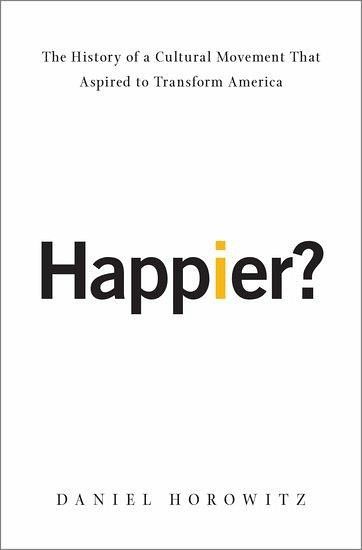
Happier?
The History of a Cultural Movement That Aspired to Transform America
Versandkostenfrei!
Versandfertig in über 4 Wochen
35,99 €
inkl. MwSt.
Weitere Ausgaben:

PAYBACK Punkte
18 °P sammeln!
Happier? provides the first history of the origins, development, and impact of the shift in how Americans - and now many around the world - consider the human condition. This change, which came about from the fusing of beliefs and knowledge from Eastern spiritual traditions, behavioral economics, neuroscience, evolutionary biology, and cognitive psychology, has been led by scholars and academic entrepreneurs, in play with forces such as neoliberalism andcultural conservatism, and a public eager for self-improvement. Ultimately, the book illuminates how positive psychology, one of the most infl...
Happier? provides the first history of the origins, development, and impact of the shift in how Americans - and now many around the world - consider the human condition. This change, which came about from the fusing of beliefs and knowledge from Eastern spiritual traditions, behavioral economics, neuroscience, evolutionary biology, and cognitive psychology, has been led by scholars and academic entrepreneurs, in play with forces such as neoliberalism andcultural conservatism, and a public eager for self-improvement. Ultimately, the book illuminates how positive psychology, one of the most influential academic fields of the late twentieth and early twenty-first centuries, infused American culture with captivating promises for a happier society.













